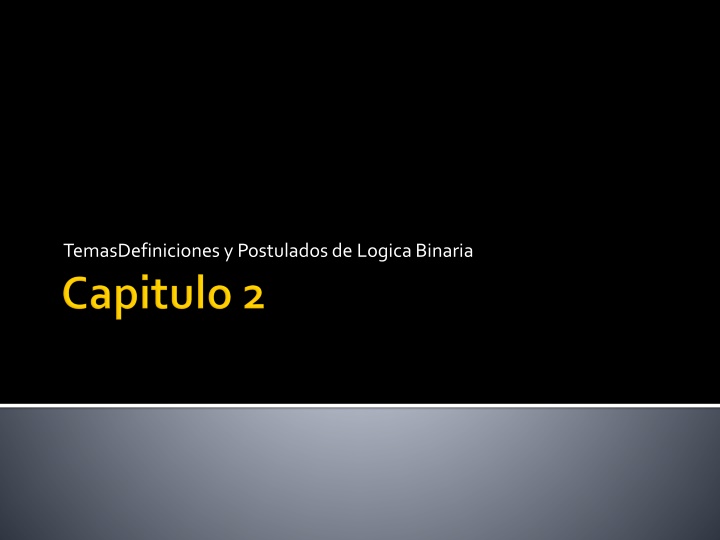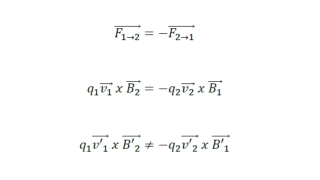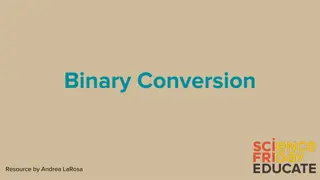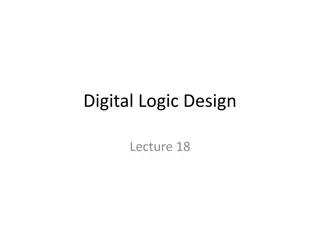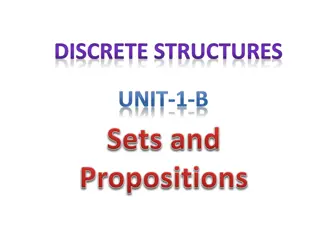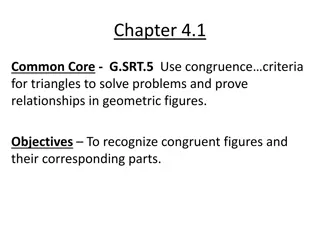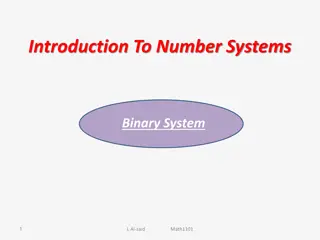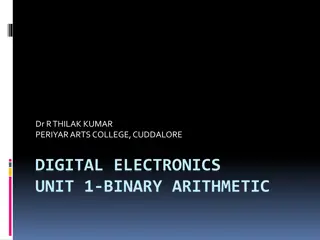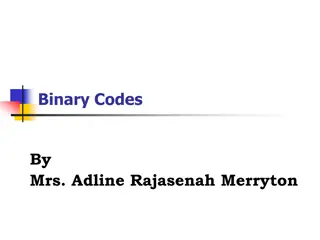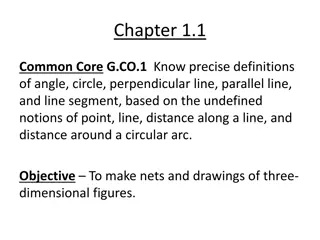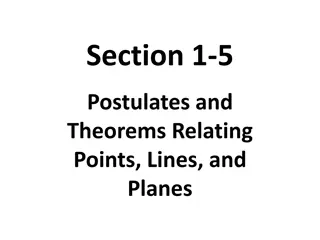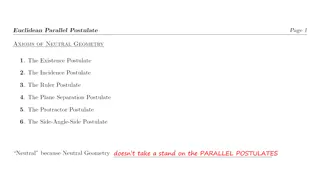Fundamentals of Binary Logic: Definitions and Postulates
Binary logic involves concepts such as closure, associative law, identity element, additive and multiplicative operators, distributive law, and inverses. These concepts define the behavior of binary operators on sets, including addition, subtraction, multiplication, and division in relation to specific elements.
Download Presentation

Please find below an Image/Link to download the presentation.
The content on the website is provided AS IS for your information and personal use only. It may not be sold, licensed, or shared on other websites without obtaining consent from the author.If you encounter any issues during the download, it is possible that the publisher has removed the file from their server.
You are allowed to download the files provided on this website for personal or commercial use, subject to the condition that they are used lawfully. All files are the property of their respective owners.
The content on the website is provided AS IS for your information and personal use only. It may not be sold, licensed, or shared on other websites without obtaining consent from the author.
E N D
Presentation Transcript
Closure. = A set S is closed with respect to a binary operator IF for every pair of elements of S. the binary operator specifies a rule for obtaining a unique element of S. Example, the set of natural numbers N = {I. 2, 3, 4, ... ) is closed with respect to the binary operator plus (+) by the rules of arithmetic addition. since for any a. b N we obtain a unique c N by the operation a + b = c. The set of natural numbers is not closed with respect to the binary operator minus(-) by the rules of arithmetic subtraction because 2 - 3 = - I and 2, 3 N. while (-I) . N.
Associative law. A binary operator * on a set S is said to be associative whenever (x * y) * z = x * (y * z) for all x, y, z, S Identity element. A set S is said to have an identity element with respect to a binary operation * on S if there exists an element e S with the property for every x S Example: The element 0 is an identity element with respect to operation + on the set of integers 1= { ... , -3, -2, -1,0, 1,2,3, ... } since x+O=O+x=x for any x The set of natural numbers N has no identity element since 0 is excluded from the set. I
The binary operator + defines addition. The additive identity is O. The additive inverse defines subtraction.
The binary operator defines multiplication. The multiplicative identity is 1. The multiplicative inverse of a = 1/ a defines division, i.e., a' 1/ a = I. The only distributive law applicable is that of over +: a (b + c) = (a b) + (a c)
Distributive law If * and , are two binary operators on a set S, * is said to be distributive over whenever x * (y z) = (x * y) (x * z)
Inverse. A set S having the identity element e with respect to a binary operator * is said to have an inverse whenever, for every x S, there exists an element y S such that x*y=e Example: In the set of integers I with e = 0, the inverse of an element a is (-a) since a + (-a) = O.
Distributive law. IF * and , are two binary operators on a set S, * is said to be distributive over whenever x * (y z) = (x * y) (x * z)
